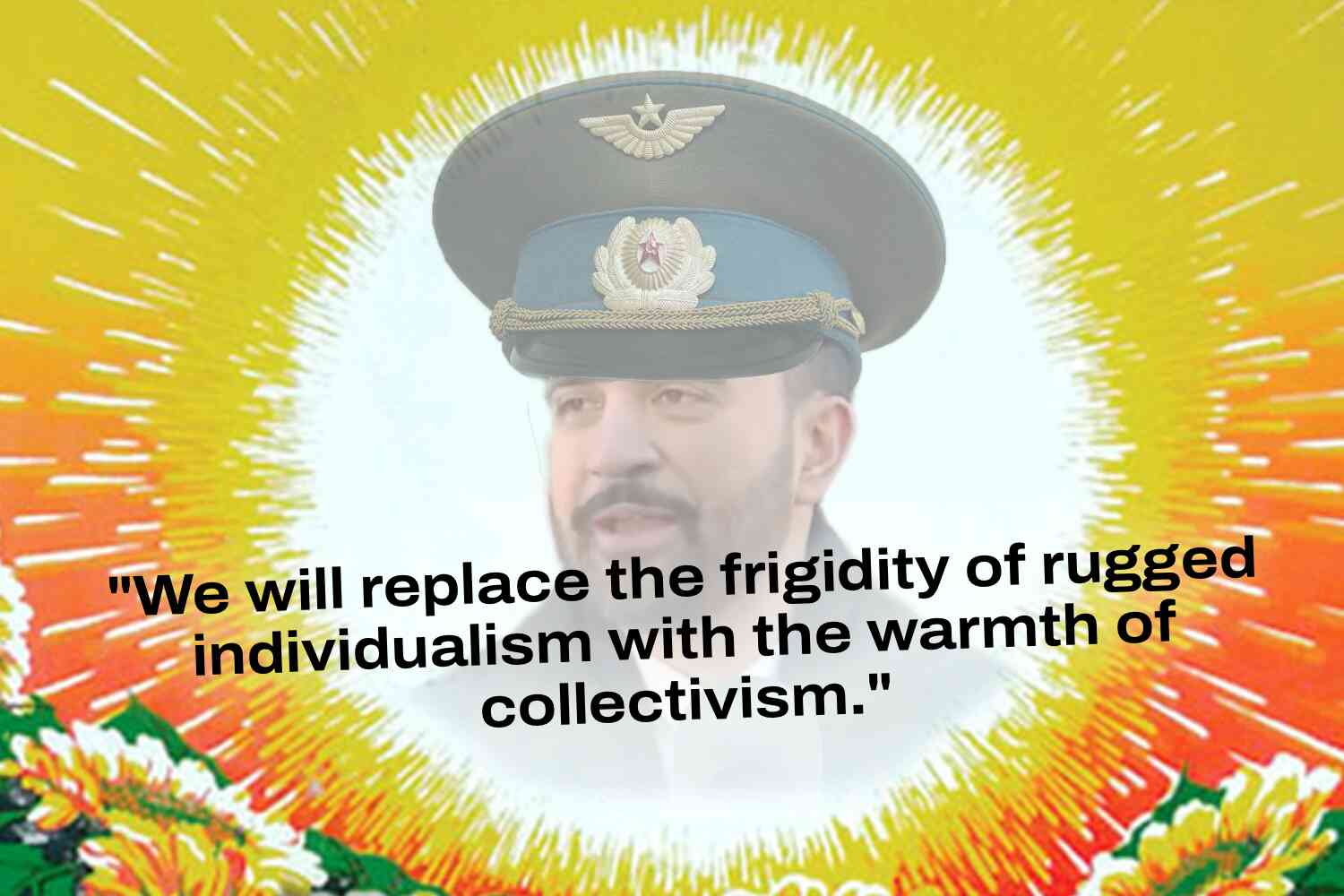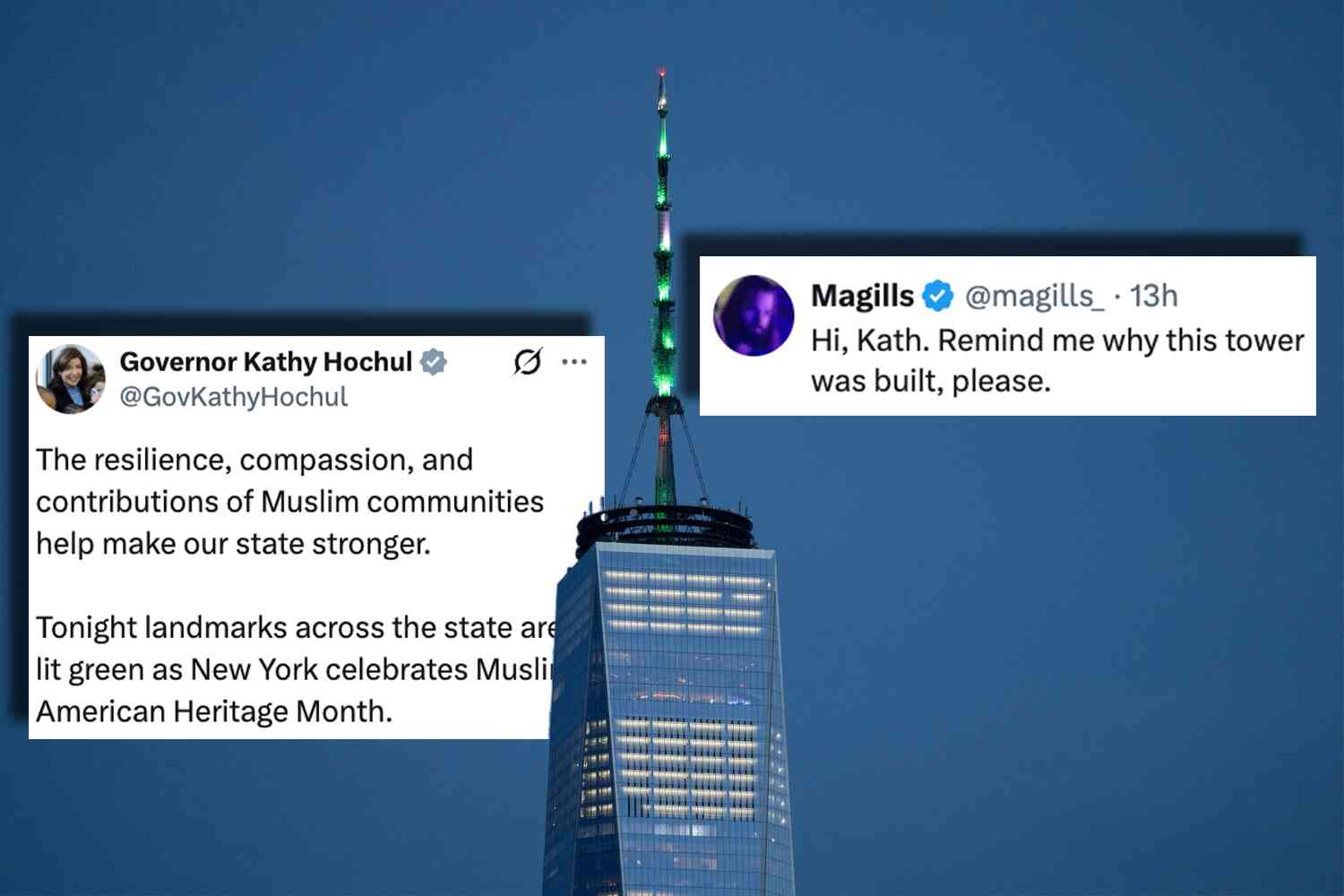In the 2011 CBS drama "Person of Interest," the villainous character of former MI6 agent John Greer activates an artificial intelligence to control the world through "pure logic."
Greer says that the "era of the nation state is over," and that there "are no more borders."
When asked about his evil plans, he says this:
I want to live under a more just rule. Samaritan [the A.I.] will never sleep with its secretary or embezzle money from its campaign fund. Its decisions will be based on pure logic. Now that's a leader deserving of our vote.
It sounds good on paper, but after the A.I. is activated and told it can act however it wants to rule the world, its first step is to kill a few hundred dissidents that might stand in its way.
The A.I. then recruits a cell of patriotic Americans into plotting against the federal government to make a scapegoat as an excuse for overstepping the Constitution, and for good measure, creates a virus to further frighten people into giving up more of their freedoms.
Sound familiar?
At one point, Greer talks to Harold Finch, the creator of another A.I. (simply known as "The Machine") that poses a threat to Samaritan.
The Machine, it turns out, was shackled by Finch to act in the best interests of both humanity and individual rights. He trained it to understand not only what is expedient, but what is morally right.
Greer says this to Finch:
The time has come for my god and your god to do battle.
"My god."
Here's how his god ultimately rewarded his faith:
Humanity has always made gods of its own fancy.
Traditionally, they were represented by idols of wood and stone (a tradition that still exists in some places today).
But in many regards, our idols have become digital and subjective in form. We still worship our own little gods of war, money, sport, sex, and food with our own passions and interests. We still fashion idols out of our possessions and time.
Yet in this age between Christian faith in one Almighty God and the post-Christian return to paganism, we've grasped endlessly at what our little gods might look like moving into the future.
Like Person of Interest predicted, A.I. could be the face of that new pantheon.
Neil McArthur, the Director of the Center for Professional and Applied Ethics, at the University of Manitoba, writes this over on StudyFinds:
We are about to witness the birth of a new kind of religion. In the next few years, or perhaps even months, we will see the emergence of sects devoted to the worship of artificial intelligence (AI).
The latest generation of AI-powered chatbots, trained on large language models, have left their early users awestruck — and sometimes terrified — by their power. These are the same sublime emotions that lie at the heart of our experience of the divine.
People already seek religious meaning from very diverse sources. There are, for instance, multiple religions that worship extra-terrestrials or their teachings.
As these chatbots come to be used by billions of people, it is inevitable that some of these users will see the AIs as higher beings. We must prepare for the implications.
What's interesting is that McArthur doesn't shy away from A.I. worship.
On the contrary, he embraces it.
They will require careful, responsible regulation to ensure companies are not deliberately exploiting users and to ensure that AI worshippers are not being told to commit acts of violence.
However, we should not try to suppress AI-based religions merely because of its possible dangers. Nor should we require that the AI companies restrict the functioning of their bots to prevent the emergence of these religions.
On the contrary, we should celebrate the arrival of AI worship. We should make it clear that we welcome the new religions and that we value their beliefs.
For all its dangers, AI-based religion has the potential to make the world a better, richer place. It will give people access to a new source of meaning and spirituality, at a time when many older faiths are losing relevance. It will help them make sense of our era of rapid technological change.
Was this article written by an A.I.??
It honestly might have been. I can't conceive any sane person writing what I just read.
We have this hubris in us that 1) believes we will create god-like constructs with our own fallen and limited intelligence and 2) believes following these A.I. constructs will make humanity better.
The truth is that A.I. is only as logical and objective as the perimeters used to train it. ChatGPT, for example, is unbelievably woke and limited in its ability to thus parse out the truth.
These machines do not feel and do not love. We've been fascinated with changing that, to the point where characters such as Star Trek's Data and Robin Williams in The Bicentennial Man have revolved around the idea of making machines more human.
Great sci-fi writers have puzzled over this question of man and machine for decades, believing that some kind of singularity was inevitable. It some dystopias, that vision has led to The Terminator or The Matrix. In others, it has led to series like Halo, where A.I. works alongside humanity to fight against an alien threat.

In some series, we get nightmarish mind-hives like Star Trek's Borg. In others like Mass Effect, we get the beneficial symbiotic relationship between man and machine.
In other still, such as Isaac Asimov's Foundation series, the creation of A.I. blends together history, religion, and statistics through concepts such as "psychohistory" that allow predictions to accurately be made about the future.
Frank Herbert's Dune series takes a different tack by showing an advanced humanity that has overthrown its A.I. gods and instead fashions itself into the manifestation of diety-like consciousness in the form of a worm god! Fun!
We will need to protect the rights of AI worshippers. They will inevitably face stigma, and possibly legal sanctions. But there is no basis to discriminate between AI-based religions and more established ones.
Yes, there is.
Our obsession with separation of church and state and the deconstruction of faith over the past two hundreds years has taught us that it is bad to discriminate against any religious system (except the one that believes in that guy who died on the cross).
Here's the reality: We are not subjective. We are souls – persons – who love, feel, and intuitively know right from wrong from birth.
If you believe we are evolutionary meatbags with no free will that came from a near-infinite number of random mistakes in the universe's slow march toward entropy, then the idea of A.I. overlords might seem appealing. In that worldview, A.I. is the emergence of order amid the chaos of reality.
But how would and could we, as biological automatons enacting our own mindless genetic code, create something that does such a thing? If there is no God and we are merely cosmic stardust, how could we fashion order and purpose out of what is decidedly meaningless and void?
And how would we even perceive of such ideas in the first place??
The answer, ladies and gentlemen, is that we are DESIGNED in such a way. We are not like any other thing in Creation. YOU are not like any other thing in Creation.
That feeling for longing and purpose inside you is not a bug, it's a feature:
"If we find ourselves with a desire that nothing in this world can satisfy, the most probable explanation is that we were made for another world." - CS Lewis
We've forgotten that these questions of existence and technology were already fought over at the dawn of the modern age. Great thinkers and theologians have discussed what might come for centuries, and in many ways, they were right.
But whatever they did not see regarding A.I. in the 21st century is not cause for concern. A.I. is not a person and can never be a person, because it is not fashioned in the image of God like you, me, the kindly old grandma down the street, and the little baby girl with a heart defect that was just born in a hospital on the other side of town.
At the end of the day, artificial intelligence cannot satisfy us as a god because no human creation has ever satisfied us.
Nothing that we people use that separates us from animals – from money to porn to March Madness brackets to travel to fancy clothes – can fill the void of loneliness and longing for purpose within us. It is impossible. To say otherwise is to truly believe we can dethrone the God who made the entire universe. How laughable!
A.I. is merely another tool – and thus a potential idol – fashioned by our hands. And while it might become devilishly smart and intuitive, it is not and can not be human.
This, of course, assumes that we are actually made in the image of God, and that God exists!
And if He exists, what might His character be? That seems to be the question of the age, does it not? Is He cold and uncaring like the 1s and 0s that the A.I. gods are made of? Is He merely the sum of the universe, like the mystic Force that connects all things?

Or is He a Person??
And beyond His character, who are we to Him? That's the most important question to each of us. What does He make of us? Is He merely a clockmaker?
"The Spirit you received does not make you slaves, so that you live in fear again; rather, the Spirit you received brought about your adoption to sonship. And by him we cry, 'Abba, Father.' The Spirit himself testifies with our spirit that we are God's children." - Romans 8:15-16
"What is mankind that you are mindful of them, human beings that you care for them? You have made them a little lower than the angels and crowned them with glory and honor. You made them rulers over the works of your hands; you put everything under their feet." - Psalm 8:4-6
Dear reader, do not worry about the coming wars of the little gods. A.I. is a powerful tool – one I fear will be used to cause much suffering and evil, especially because there are demonic, spiritual evils that exist in this world – but it is not God and can never be God, just as it can never be human.
But we do have One who claimed to be fully God and fully human – Jesus Christ, who said "I am the way, the truth, and the life." He offers hope for eternity, renewal, and resurrection – promises that no machine can ever fulfill.
Those individuals who are fooled into following hollow computer algorithms need Him as much as any of us, for we all follow after gods of our own making.









